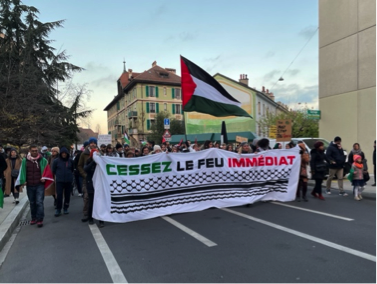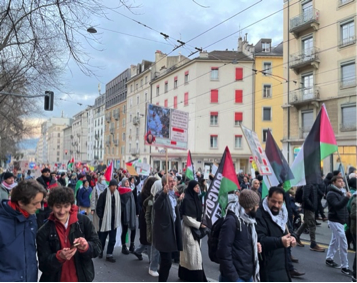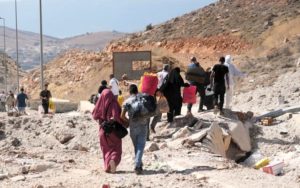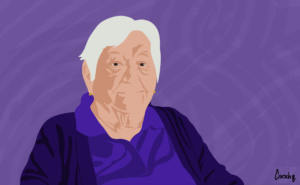Global order in retreat… normalisation of unrestricted warfare. Reflections in these troubled times by Antonio Donini, a UAI co-founder. Comments welcome. All pictures are taken by Antonio himself.

30 December 2023
Dear friends near and far,
Greetings to all.
I had set out to write the usual end of year letter recording personal events, travels to exotic places, work done, successes and challenges encountered, health mishaps and the like… but I soon realized that this was impossible given the dire state of the world from Afghanistan to Ukraine via Gaza, the Sudan and….. Instead of Xmas cheer and wishes for the New Year here are some personal reflections on these dark times. And a backwards poem on Gaza.
The crisis of multilateralism.
Colonel Aureliano Buendía, hero of Gabriel Garcia Marquez’s One Hundred Years of Solitude fought enthusiastically in thirty-four wars and lost them all. One wonders whether the multilateral system – the one built around the UN and regional institutions such as the European Union – is in a similar quagmire of optimistic rhetoric and lost battles. The gap between the ideals of the founding fathers – and Eleanor, the only mother – and the harsh reality of the obstacles to their realization has never been wider. One has to ask whether it is preferable to pursue seemingly pointless life-support therapies to save the UN from irrelevance or to search for an alternative institution, more adapted to a multi-polar world. The outlines of any viable reform, for now, are difficult to see.
The structural and contingent causes of the crisis of multilateralism intersect and overlap. It is difficult to unscramble how much is due to Realpolitik, to the political, military and economic tensions accumulated in recent decades and how much is instead the consequence of an original sin committed in 1945 (or earlier) that triggered dynamics that we only grasp now. A few points for consideration.
To begin with, the UN’s so-called universal founding values are largely Western-based. As with the League of Nations after WWI, Empire was as at work. Some scholars[i] claim that the “Never again” rhetoric of the horrors of war and the Shoah was a convenient screen for the colonial powers (Great Britain, France, Belgium, Portugal, and also the USSR) and the neo-colonial US hegemon to maintain control over their spheres of influence. The goals of decolonization and self-determination appear neither in the UN Charter nor in the Declaration of Human Rights. The African-American intellectual W.E.B. Dubois quipped in this regard: “We have defeated Germany but not its ideas. We still believe in white supremacy, keeping Negroes in their place and lying about democracy when we mean imperial control of 750 millions of human beings in colonies.” The creation of the State of Israel responded to the same logic: “Jewish settlers would be a civilizing force” that would usher in a new model of growth and development for the entire region.[ii]
More importantly, the power of the West – and of the sociological and political burdens it imposes on the rest of the world – is now in decline. Economic power is slipping further and further eastward. The political weight of China, India and Asia is growing strongly. The so-called universal values – democracy, rule of law, human rights – are viewed with suspicion by the leaders of much of the rest of the world. They do not hesitate to crack down violently when their power is challenged – as we have learned painfully from the Arab, Iranian and other “Springs”.
The very concept of the “Westphalian” state, consolidated in Europe after the 1648 Treaty of Westphalia and gradually imposed on the rest of the world, is considered outdated in Asia and elsewhere. In the last two decades, authoritarian state models, which some call “Eastphalian,” have been mushrooming from Russia, to India, to China. Pax Americana, – whatever that means… since, like Colonel Buendía, the US has lost every armed conflict since the Korean War – is increasingly contested. On the economic-normative level, “Empire” resists in the sense that it still manages to dictate the parameters of the functioning of international capitalism, but its center is no longer in the US. It is a “decentralized and deterritorialized” form of governance without government.[iii]
The structural inability of the UN, and its Security Council in particular, to address the exponential growth of the inhumanity of contemporary warfare, and attendant humanitarian consequences, has been laid bare before our eyes. From Ukraine to Gaza, from Sudan and the Sahel to Myanmar, the impotence of the organization that should be at the forefront of promoting peace and alleviating the suffering of civilian populations has been physically painful to watch. Catastrophic cruelty often done in our name with our weapons and taxes. The pale sun of humanitarianism somehow still struggles to shine even if, as in Gaza, it is used as a narrative to deflect attention from the need to stop the bombing – the necessary prerequisite to any serious action to save lives. The rules and limits that international humanitarian law should place on the conduct of war have no meaning when civilians, hospitals, schools, refugee camps are the target. The Israeli-Palestinian conflict, from the river to the sea, teaches us that we live in a “pre-Solferino” world, as if the Geneva Conventions did not exist. On occasion, I have been accused of being a peacenik because I have wondered if Tolstoy was right and Dunant was wrong.
Henry Dunant
Was a tad pedant
When he insisted that war
Could be tamed by the law.
But….
Great Leo Tolstoy
said peace was Bolshoi.
We’ll all be damned
unless war is banned.
Eyeless in Gaza
It is said that the name “Gaza” comes from gauze, the cotton fabric that was produced there. An apt etymology, perhaps, given the current shortages of medical supplies. October 7th shocked the world but, on rapid reflection, it was not a surprise. The heinous crimes of Hamas will not be forgiven and those responsible must be held to account. But Gaza was a ticking time-bomb that was largely ignored. After 80 days and counting of ruthless Israeli bombing and what can only be construed as the intentional targeting of civilians, medical facilities, schools and essential infrastructure, I am lost for words. A besieged, urban, open-air prison relentlessly bombed. A ghetto levelled with genocidal intent. Labels fail to capture the reality of the devastation and immiseration of an area slightly larger than Manhattan where some two million people have had their houses and means of survival destroyed and made displaced. Over the last three months, the rain of bombs on densely populated Gaza has produced the largest number of casualties of war in an urbanized environment since Nagasaki[iv] and… since the adoption of the Geneva Conventions in 1949. And this… just a year after 83 UN Member States signed up to the commitments set out in the November 2022 Political Declaration to restrict or refrain from the use of Explosive Weapons in Populated Areas. The promise of EWIPA is yet another casualty of failing multilateralism.
Pile the bodies high at Austerlitz and Waterloo.
Shovel them under and let me work—
I am the grass; I cover all.
And pile them high at Gettysburg
And pile them high at Ypres and Verdun.
Shovel them under and let me work.[v]
And pile them up high at Jabalia, Al Shifa, Khan Younis and Rafah…
Language and War
It is impossible to find the words. They have died in Gaza. At some point, soon maybe, we will find new ones. More hopeful ones. But for now… they are rushing backwards.
Azag
Azag rof sseleye
Azag rof sselhtoot
Esoohc I tsum
Redloheb eht fo eye eht ni si msi eht
Etats rorret
Rorroh etats
Etaler nac I
Nerdlihc daed ot
Setats ylno
Thgir eht dewotseb
Ecnefed fo
Rorrim eht ni kool
Ees dna
Ecaep on ecitsuj on
Aes eht ot revir eht morf
3202 rebmevon
Gaza is a punch to the solar plexus on what it means to be human. The use and abuse of language in war is nothing new. On 1 September 1939, the title page of Corriere della Sera, Italy’s then most respected newspaper was È cominciata la guerra umanitaria! (The humanitarian war has begun!). Today we have a “special operation” aimed at “de-nazifying” “a country that does not exist” if not in the minds of the “neo-Nazis” that run it. The enemies are “animals” (is this an improvement on Rwandan 1994 “cockroaches”?) and they are being killed “by the world’s most moral army” which claims it does its utmost to protect civilians and respect IHL. “The only democracy in the Middle East,” naturally, has “the right and duty to defend itself”, a right which is denied to the Palestinian people. Never say that the conditions under which they live is “apartheid” or that Gaza is “a ghetto” or that 7 October “did not happen in a vacuum”. It is well understood, but you cannot say, that one person’s “terrorist” is another person’s “freedom fighter” and that, by the way, a certain state bordering the Mediterranean was born of “terrorism”, including the wanton bombing of a hotel full of international staff which killed and wounded some 200 people in 1946 and the murder of a senior UN envoy in 1948. The leaders of the groups that did this then became ministers and generals of said “only” democracy. I can go on. In praise of forgetting, David Rieff would say.
What is the reflective citizen to do with the toxic language used to rewrite the inhumanity of the reality in Gaza? Use descriptors rather than loaded or incendiary terms. In short, become anti-semantic. Eschew terms like “terrorism” that have no agreed definition and are generally used to describe particular groups and not the terror used by states. Call the horror what it is. Calling Israel a “terrorist state” will be challenged but saying that Israel “is a regime of state terror whose raison d’être is the theft of Palestinian land and, whenever possible, the expulsion of its Palestinian owners” [vi] is more precise and because it is based on facts it will be more difficult to challenge. Describing the atrocities committed by both sides – and their backers and suppliers of weaponry, including the hyper deadly 1000kg bombs – documenting the violations of IHL, siege and starvation, forced displacement, holding of civilians hostage seems to be the only humane and sane way forward. Which will make the accountability of perpetrators perhaps easier to ensure. A very big perhaps. And it’s not just those who pull the trigger and drop the bomb. It’s also those who “fill the till and pay the tax and foot the bill”.
Common Article 1 of the Geneva conventions reminds us that signatories “undertake to respect and ensure respect” for the laws of war in all circumstances. This responsibility extends to all of us. George Steiner’s dictum is worth repeating. It was about the Holocaust but applies equally well to the deliberate suffering of civilians in Gaza:
“Men are accomplices to that which leaves them indifferent”.[vii]
I am the man who fills the till,
Who pays the tax, who foots the bill
That guarantees the Bomb he makes
For him to load for him to drop
If orders come from one who gets
The word passed on to him by one
Who waits to hear it from the man
Who gives the word to use the Bomb.
I am the man behind it all;
I am the one responsible.[viii]
It is easy to find the road to hell. More difficult to come back up. We have no golden bough to guide us, but we must try. This is no time to give up. Try, fail, try again, fail better as Sam Beckett would say. One of the paradoxes of modern wars is that citizens know much more of the horror and devastation while such horrors are happening. One of the paradoxes of Gaza is that never before has there been such open discussion of the laws of war and humanitarian law. It’s no consolation for the thousands who have been slaughtered but it gives us – citizens, humanitarians, peace activists – an opening.


Popular mobilization against the war in Palestine, and the conditions that brought it into being, is heartening. There is much to do to turn indignation into political change. The ballot can sometimes tame the bullet. If not… Occupy. Make noise. Not in My Name. We need some active citizen multilateralism. Our shared humanity is at stake. Make 2024 the year we bury the notion that atrocity and mass murder are OK.
Antonio

[i] In particular, Mark Mazower, No Enchanted Palace. The End of Empire and the Ideological Origins of the United Nations, Princeton University Press, 2013.
[ii] Both quotes are in Mazower, p 63 and p 144.
[iii] Hardt and Negri, Empire, 2001.
[iv] For comparison purposes: The Gaza bombings over a less than three-month period have caused at least 22k casualties and counting (70% women and children) and hundreds have been killed in the West Bank; the US-led campaign against ISIS in Iraq and Syria resulted in “only” 8,000 to 13,000 civilians killed over a multi-month period (airwars.org, 2020); the atom bomb on Nagasaki killed between 40,000 and 70,000 predominantly civilians in one day (A. Wellerstein, Bulletin of Atomic Scientists, August 2020).
[v] Carl Sandburg, Grass.
[vi] Lest there be any confusion, this quote comes from “Heading Toward a Second Nakba” by David Shulman, Israeli academic and peace activist, New York Review of Books, 19 October 2023.
[vii] George Steiner, Language and Silence, Penguin, London, 1969, p.131.
[viii] Peter Appleton, The Responsibility.











